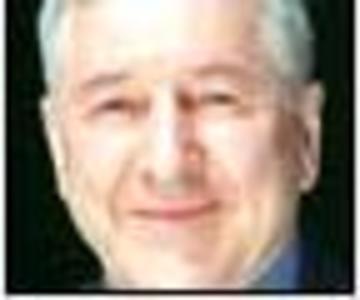Stéphane Dion is under siege by the angry ghosts from his past. The insurrection against him by his party's Quebec wing means more than personality clashes or conflicting ambitions. In Quebec, as often happens, politics are infiltrated by ideology.
True, Jamie Carroll's flippant question, "If I hire more Québécois, will I also have to hire more Chinese?" was insensitive. But it hardly rated a public hanging, much less what the Journal de Montréal described as "no longer a family quarrel, it is becoming a civil war."
The Liberal heavyweights who called for his firing - Robert Fragasso, president of the Quebec wing, MP Pablo Rodriguez, the former president, and MP Denis Coderre - have two things in common: They supported Michael Ignatieff in the 2006 campaign for the Liberal leadership, and they supported the resolution adopted overwhelmingly by the party's Quebec wing last Oct. 21, which stated: "the Liberal Party of Canada recognizes the Quebec nation within Canada."
Former astronaut Marc Garneau was the best known of several actual or prospective Liberal candidates who conspicuously slammed the door on Dion. He also had backed Ignatieff and the resolution recognizing the Quebec nation.
Ignatieff, as front-runner candidate for the leadership, was the most prominent supporter of that resolution. Dion opposed it. He did not deny that Quebec was a nation in fact and as a sociological reality. He had backed the Meech Lake accord recognizing Quebec as a "distinct society," which meant much the same. But, after he was appointed to the cabinet following the near-fatal 1995 referendum, Dion spent more than two years crossing the country trying to fulfill Jean Chrétien's referendum promise to recognize Quebec as a distinct society in the constitution. That eventually produced the 1998 Calgary Declaration, which remained a dead letter because Quebec rejected it.
Dion learned from decades of experience as a political scientist and a minister - while Ignatieff was living abroad - that consensus could not be found. The nation resolution threatened to divide the Liberal convention in December, and revive feelings of national rejection in Quebec. It was withdrawn before it could be debated.
Moreover, the Quebec resolution asserted an old myth in its preamble: "Whereas history recognizes the three founding peoples of Canada - Aboriginal, French and English..."
The resolution did not state what implications would follow the recognition of Quebec as a nation and as one of two - or three - founding peoples. That was to be decided by a group of experts after the national convention was safely out of the way.
But, in Quebec, the theory of the two founding peoples always assumed as corollary that Quebec must have at a minimum extensive powers not exercised by other provinces.
This theory was rejected by Dion who had long argued that important unique jurisdictions for the Quebec government would leave Quebec's representatives in Ottawa as impotent second-class members of Parliament. On matters that came before the Commons implicating the rest of Canada but not Quebec, they would have no legitimacy to cast a vote. Hence they would be ineligible for appointment to cabinet, which acts for the whole country or to become prime minister. That countered Quebec's true interests, he argued.
The Liberal convention was saved from turning into a donnybrook when, the week before, Prime Minister Stephen Harper adroitly turned on its head a resolution of the Bloc Québécois recognizing Quebec as a nation. He proposed, "That this House recognize that the Québécois form a nation within a united Canada."
By recognizing a group of people - the "Québécois" - rather than a political entity, Quebec, Harper defanged the resolution from what had always been its poisonous bite - the utopian assumption that the Quebec government must become a quasi-sovereign government of a quasi-sovereign state. And by designating the nation as composed (in English), by "the Québécois," he left open just whom the nation encompassed. "They recognize themselves," he would answer. He shut off any separatist implications when he told the House: "Our position is clear. Do the Québécois form a nation within Canada? The answer is yes. Do Québécois form an independent nation? The answer is no, and the answer will always be no ..."
And so Dion, consulted beforehand by the prime minister, had backed the resolution. At the Liberal convention the issue then became innocuous after the resolution passed in Parliament.
But, in the aftermath, the Liberal Party in Quebec remains ideologically at odds with its national leader. Some departing candidates evoke the controversy over the nation resolution; one even refers to the Clarity Act as "a piece of shit."
Reconciliation and unity will not be restored until the Quebec Liberals disarm in the current ideological strife. Here, Michael Ignatieff has a heavy responsibility to bring about an accommodation.
William Johnson is a Quebec journalist and a former president of Alliance
Quebec Liberals haunted by divisions over the nation question
The divisive convention debate provides the backdrop for the party's disunity
"In Quebec, as often happens, politics are infiltrated by ideology" - W. Johnson, un idéologue canadian, ostensiblement drapé dans la "rule of law"... (Vigile)

William Johnson53 articles
William Johnson, a Quebec journalist, is a former president of Alliance Quebec






















Laissez un commentaire Votre adresse courriel ne sera pas publiée.
Veuillez vous connecter afin de laisser un commentaire.
Aucun commentaire trouvé